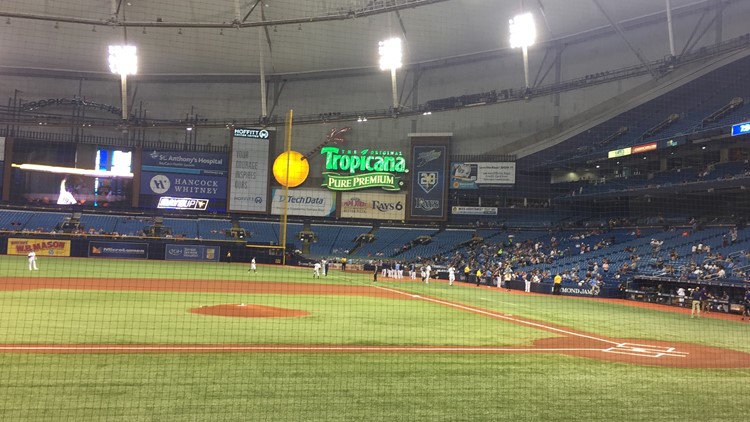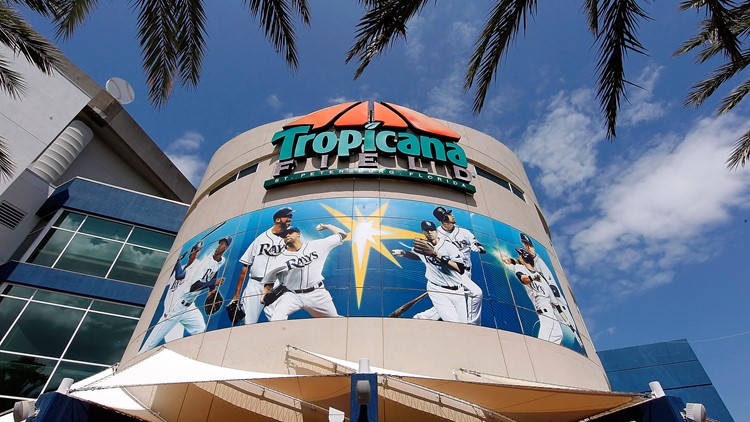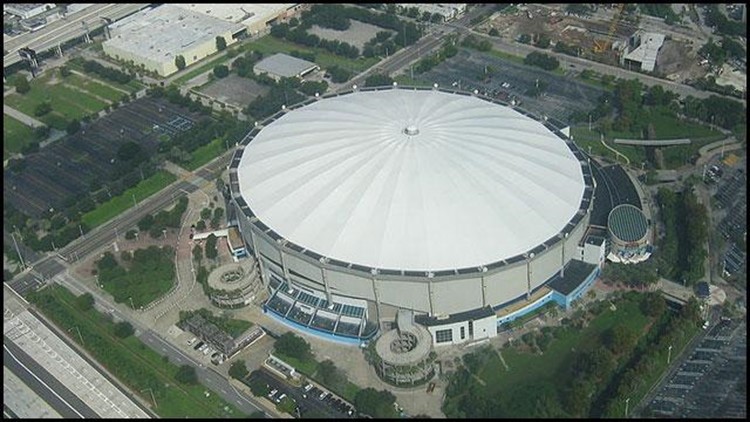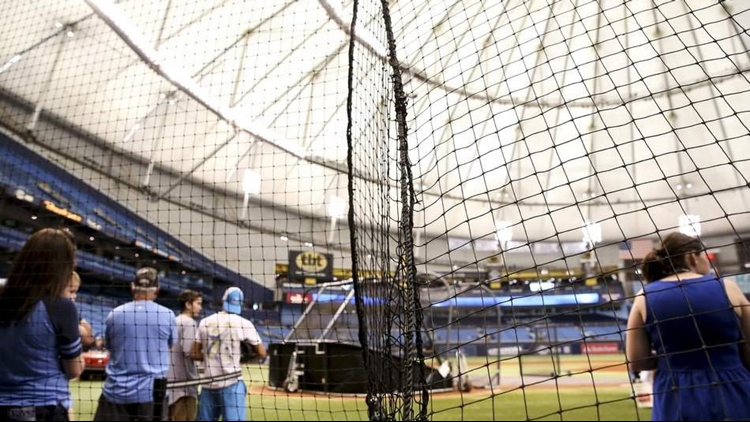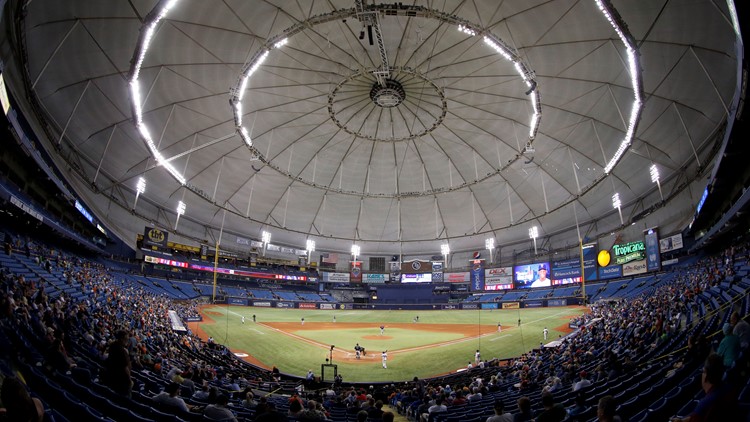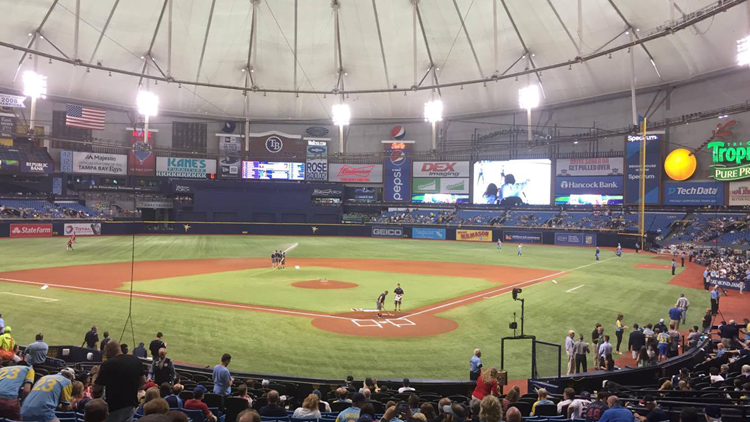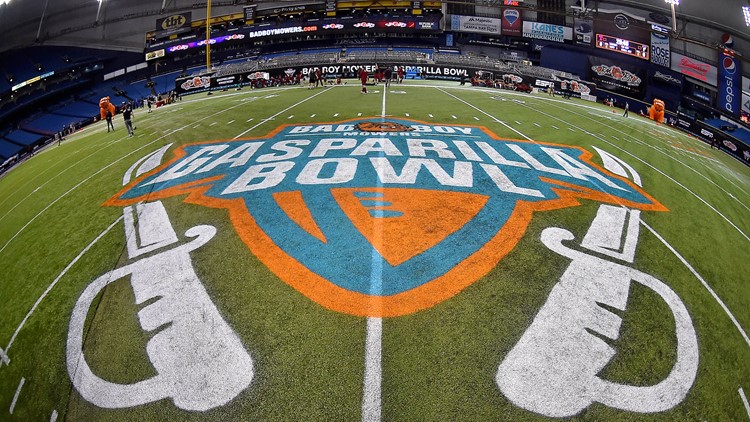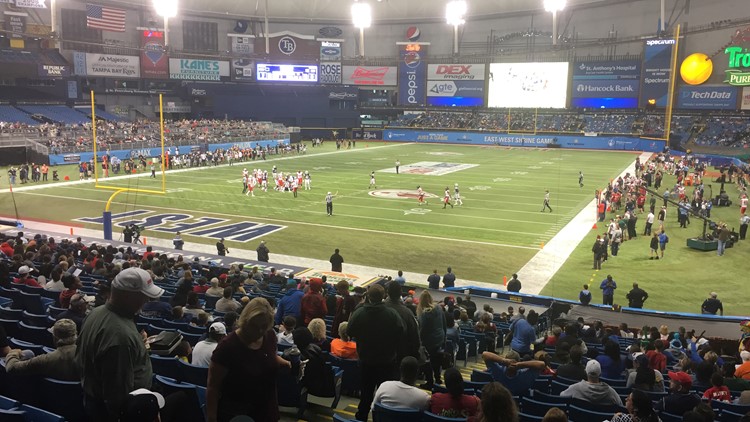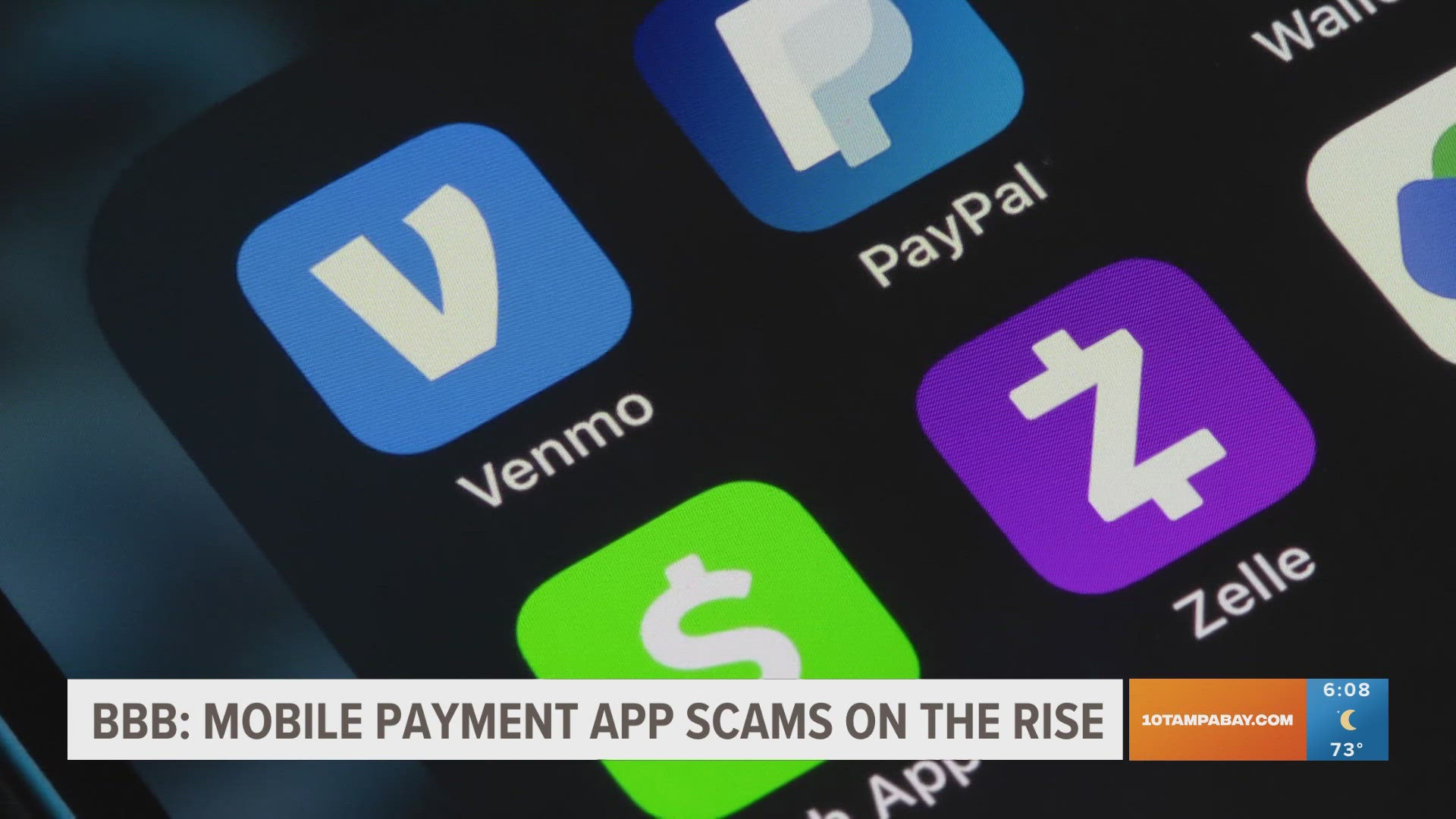TAMPA, Florida - Newly-released public records from Hillsborough County’s secret discussions with the Tampa Bay Rays reveal how the county is going about trying to raise public funds for construction on what could require more than $300 million in taxpayer funds.
10Investigates obtained the documents from the county’s two outside legal firms on the dealings, Foley & Lardner LLP and O’Melveny & Myers LLP, who previously responded to the same public records request with zero documents. But after further questions from 10Investigates, the county’s legal department provided 51 pages of documents from behind-the-scenes stadium discussions.
While county leaders have been mum on how they expect to pay for a new Rays stadium, one of the newly-obtained documents shows an agenda item from a previously-undisclosed February 2017 meeting: “general discussion of sources – trying not to focus on amounts, but sources.”
Several Hillsborough County commissioners publicly expressed concern throughout 2017 at the lack of transparency from fellow commissioner Ken Hagan regarding public financing sources and amounts.
As first reported by 10Investgates, Hillsborough County is now eligible to increase its bed tax from 5% to 6%, and Hagan is reportedly leading the charge to make the change as soon as possible to create new revenues to help fund a Rays stadium.
The county also used that Feb. 2017 meeting to discuss a Citigroup debt capacity report, which analyzed the different ways the county could come up with public money to help fund stadium construction.
The report examined how the county could raise $15 million per year by raising rental car taxes by $2 per day. However, the airport recently raised that fee to help fund its own construction, and at $5.95 per day, it’s the highest rate in the state.
With rideshare popularity surpassing rental cars, the airport also had to create new revenue from local passengers, creating a new $3-per-pickup rideshare fee, which will escalate to $5-per-pickup in 2019 to help raise additional funds.
The Citigroup stadium bond capacity report also considered extended the Community Investment Tax past 2026, when Raymond James Stadium will be paid off. The sales tax could generate $10 million per year for a new Rays stadium, but the extension would be a tough political sell and the county may need the funds to appease the Buccaneers when their lease expires the same year as the Rays’.
A new Rays stadium could cost upwards of $600 million, and Rays owner Stu Sternberg’s initial offer in public negotiations has only been $150 million. That could leave taxpayers on the hook for more than $450 million, although most sports business observers expect Sternberg to ultimately offer more.
Ballpark Reimagined
10Investigates also obtained what appeared to be a November 2017 update to the Rays’ “Ballpark Reimagined” research, compiling fan and expert recommendations for a new ballpark. Many of the recommendations echo public statements Rays’ executives have made in recent months about stadium intimacy, the need for a stadium roof, and maintaining “local authenticity.”
The Rays’ report also detailed development ideas, such as “knitting local businesses into the ballpark,” and providing “a defined gateway into the district from adjacent activity centers," such as Ybor City and Channelside.
Several times, the report mentions making the ballpark a “community asset,” which could help satisfy both stadium subsidy critics who complain about ballparks sitting empty 200+ nights a year, as well as subsidy advocates who may be looking for opportunities to use various government funds to help fund stadium construction.
“Regional connectivity” (highways & road improvements) and “site accessibility” are also prominently mentioned in the Ballpark Reimagined report.
Other documents turned over to 10Investigates from the county’s outside counsel, include maps and real estate information from various Tampa neighborhoods that helped elected and business leaders assemble parcels of land together for what ultimately became the proposed Ybor City stadium site.
Through late January, O'Melveny and Foley had billed Hillsborough County nearly $400,000 in legal bills. Firm attorneys and county leaders have quietly met regularly for years about their campaign to lure the Rays from St. Petersburg.
Home of the Rays: Tropicana Field through the years
►Make it easy to keep up-to-date with more stories like this. Download the 10 News app now.
Find 10Investigates reporter Noah Pransky on Facebook or follow his updates on Twitter. Read his Sports Business Blog at Shadow of the Stadium.




